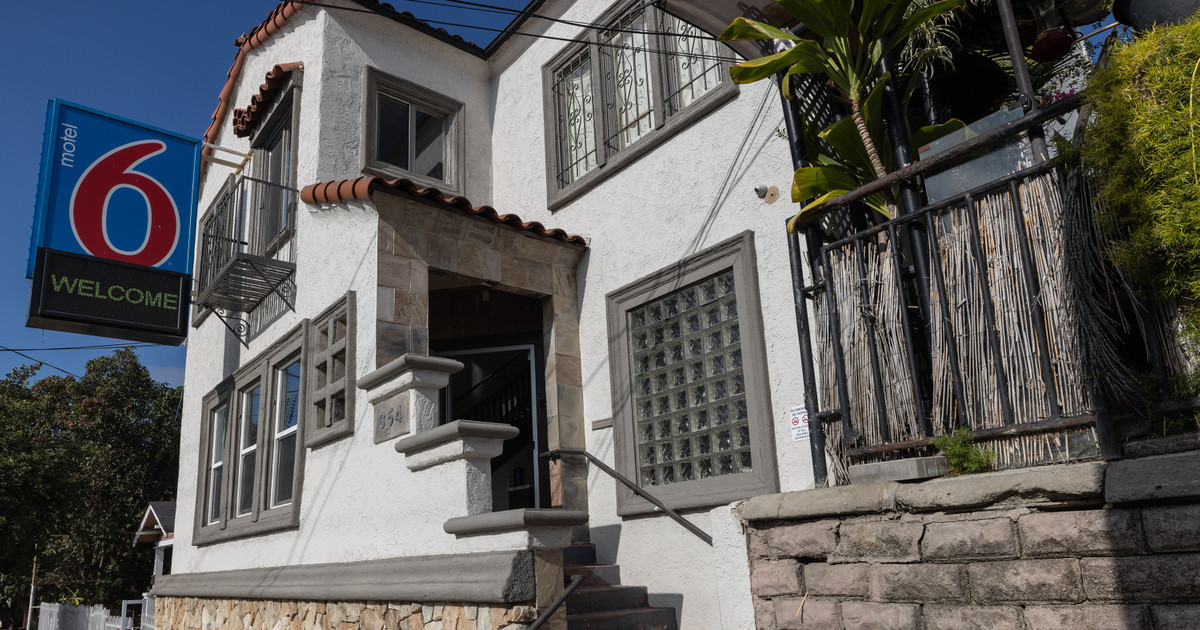Twenty-one hotels have been cited so far. If the citations are enforced and upheld in court, hundreds of rooms could be turned back into low-cost permanent housing for the city’s poorest residents.
The Los Angeles Housing Department has ordered the owners of four buildings meant to house some of the city’s poorest residents to stop renting rooms to tourists, following a review that was prompted by reporting by Capital & Main and ProPublica.
The news organizations documented how some owners of the buildings, known as residential hotels, were advertising short-term rentals online despite a 2008 law aimed at preserving the rooms as residential. Landlords who convert the buildings to other uses or demolish them must replace the units or pay into a city housing fund.
The new enforcement actions bring the number of residential hotels cited by the Housing Department for violating the residential hotel law to 21. The agency had sent violation notices to 17 residential hotels within weeks of the Capital & Main and ProPublica investigation.
In all, about 750 residential hotel rooms could be turned back into low-cost permanent housing for LA residents who have few other options — if the city’s citations are upheld in court and if the city aggressively enforces the law.
Yeah. I don’t think AirBnB and similar things exactly caused the housing crisis, but they’re certainly making it significantly worse.
Also wouldn’t mind considering a cap on the total value of residentially zoned land that a foreign national or corporation can own. I get it can be a sound investment sometimes, that’s great and all, but we kinda just need all of it to be dumped into the market.
We’ve had the same problem in Vancouver (BC, Canada) for a long time now.
AirBnB didn’t cause the problem directly, but it opened the doors to people seeing a speculative market (housing) as a commodity that they could take advantage of to enrich themselves further, while keeping people from getting a foot in the door because of reduced housing availability. We’ve introduced new legislation to combat it, and you should see how many hit-piece articles have come out about how this is going to:
- “ruin some peoples retirement plans” - probably will, but that’s a risk you take with a speculative investment
- “give the hotel industry everything they want” - also probably yes
- “won’t actually fix the housing issue” - I’m curious how a lot more availability will fail to drive prices down, which will at least help the housing issue.
People are focusing on how much money they can get for their property in one of the largest housing bubbles on Earth, and not caring that some other people simply lose out because they’re just… not already rich.
We’ve also had foreign property ownership rules changed as of this year and it’s helping a little bit already, we just need more focus on housing being… for people who live here.
“won’t actually fix the housing issue” - I’m curious how a lot more availability will fail to drive prices down, which will at least help the housing issue.
The housing crisis is mostly due to not enough supply of housing.
Legislating short term rentals like airBnB helps some, but the real fix is just building a lot more housing. Letting neighborhoods densify from single family homes to row houses or small condominiums. Building more missing middle housing like duplexes and triplexes. Building 5 over 1s.
If prices haven’t fallen, you haven’t built enough units yet.
Because the stuff you hear about there being a ton of vacant housing is mostly due to the technical governmental definition of vacant housing not lining up with the colloquial.



